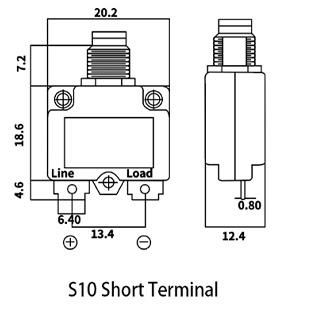Understanding Different Types of Electrical Insulation Tape
Electrical insulation tape is a cornerstone material in electrical work, essential for protecting wires, enhancing safety, and ensuring the reliability of electrical systems. Various types of electrical insulation tapes are available in the market, each designed to meet specific needs based on insulation properties, temperature resistance, and environmental factors. Understanding the different types of electrical insulation tape can help you select the right one for your application.
1. Vinyl Electrical Tape
Vinyl electrical tape is one of the most commonly used types of electrical insulation tape. It is made of a plasticized polyvinyl chloride (PVC) material, which provides excellent insulation and durability. This tape is available in various colors, making it ideal for color-coded wiring applications. Vinyl tape adheres well to most surfaces and is highly resistant to moisture, UV light, and abrasion, making it suitable for indoor and outdoor use. Its temperature rating usually ranges from -18°C to 105°C (0°F to 221°F), making it versatile enough for various environments.
2. Rubber Electrical Tape
Rubber electrical tape is designed for applications requiring superior insulation properties, particularly in high-voltage environments. It is made from a rubber-based compound that offers excellent stretchability and conformity to uneven surfaces. This type of tape is ideal for splicing wires and can provide better protection against moisture and other environmental factors compared to vinyl tape. Rubber tape typically operates within a temperature range of -18°C to 90°C (0°F to 194°F) and is often used in industrial contexts where higher electrical safety standards are required.
Mastic electrical tape provides a unique combination of adhesive and insulation properties. It is a thick tape that is designed to conform to the contours of the surface it is applied to, forming a waterproof seal. This makes mastic tape ideal for insulating and protecting connections in high-moisture environments or for underground applications. Unlike other tapes, mastic tape does not require a secondary layer of insulation, as it remains sticky and pliable, ensuring a lasting seal. Its temperature operating range is typically between -10°C and 60°C (14°F to 140°F).
electrical insulation tape types

4. High-Temperature Electrical Tape
For applications that experience extreme temperatures, high-temperature electrical tape is essential. Typically made from silicone or polyester materials, this tape can withstand temperatures exceeding 200°C (392°F) without losing its insulating properties. Such tapes are suitable for use in automotive, aerospace, and other high-temperature environments. They are often employed to insulate wires near engines or other heat sources where conventional tapes may fail.
5. Heat Shrink Electrical Tape
Heat shrink electrical tape is an innovative option for anyone looking to create a robust, moisture-proof seal. When heat is applied, this tape shrinks to fit tightly around the underlying surface, creating a strong, insulated barrier. It is often used in applications where traditional tapes might not adhere properly or where additional environmental sealing is needed. Heat shrink tape is highly effective in electrical applications that require durability and protection against wear and tear.
6. Specialty Electrical Tape
In addition to standard tape options, there are specialty electrical tapes designed for specific applications. For instance, anti-arch tape is designed to prevent electrical arcing in high-voltage applications. Self-fusing silicone tape is another example; it bonds to itself upon application, creating a strong, waterproof seal without the need for adhesive. These specialty tapes are invaluable in settings that demand tailored solutions for safety and performance.
Conclusion
Choosing the right electrical insulation tape is crucial for ensuring safety and reliability in electrical applications. By understanding the different types available, including vinyl, rubber, mastic, high-temperature, heat shrink, and specialty tapes, you can make informed choices that best suit your project's requirements. Whether you are a DIY enthusiast working on home renovations or a professional electrician tackling intricate installations, selecting the appropriate type of electrical insulation tape can enhance both the performance and longevity of your electrical systems. Remember to always refer to the manufacturer's specifications and guidelines for optimal results in your projects.
-
XIANGFAN Rubber Tape-Ultimate Solutions for All Your Insulation NeedsNewsJun.24,2025
-
XIANGFAN Rubber Tape-Protection for Industrial and Residential ApplicationsNewsJun.24,2025
-
XIANGFAN Rubber Tape: Superior Safety and Sealing for Demanding EnvironmentsNewsJun.24,2025
-
XIANGFAN Rubber Tape: Reliable Solutions for Every Electrical ChallengeNewsJun.24,2025
-
XIANGFAN Electrical & Industrial Tape: Powering Reliability Across IndustriesNewsJun.24,2025
-
XIANGFAN Electrical & Industrial Tape: Excellence in Every ApplicationNewsJun.24,2025
